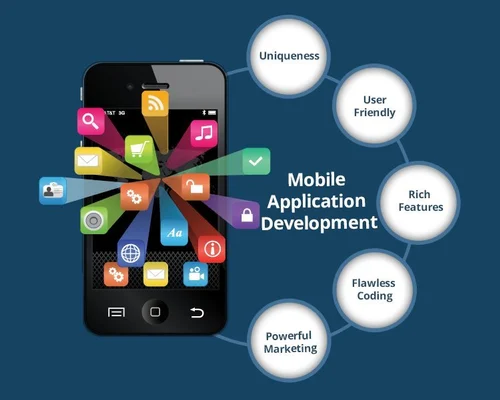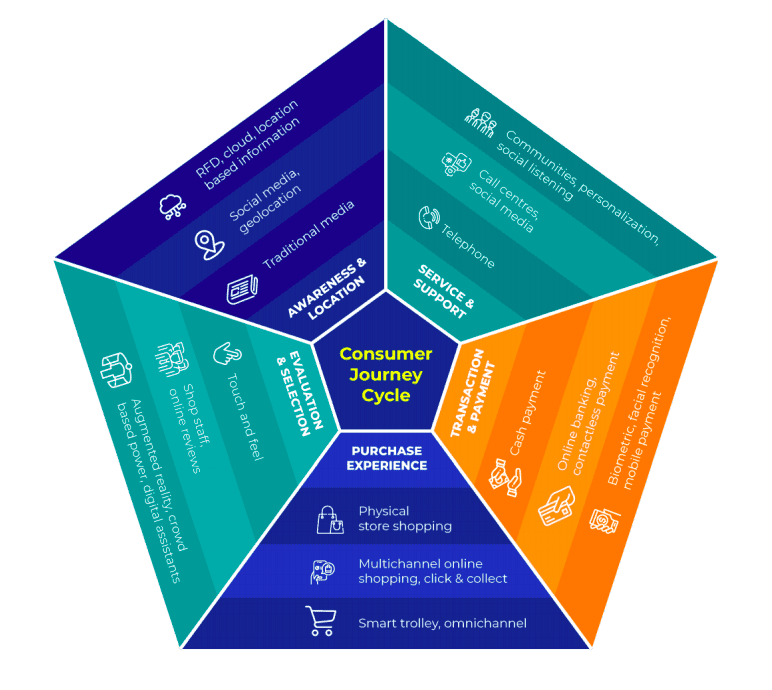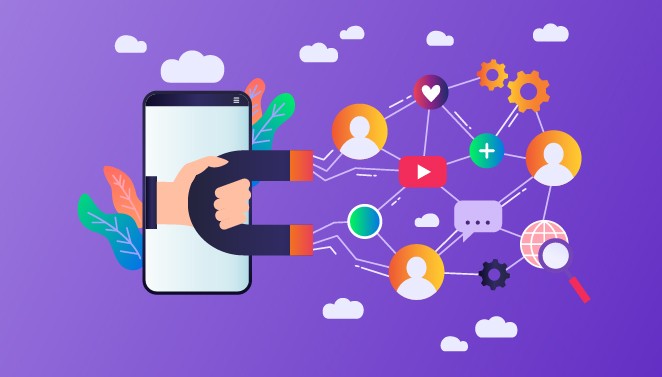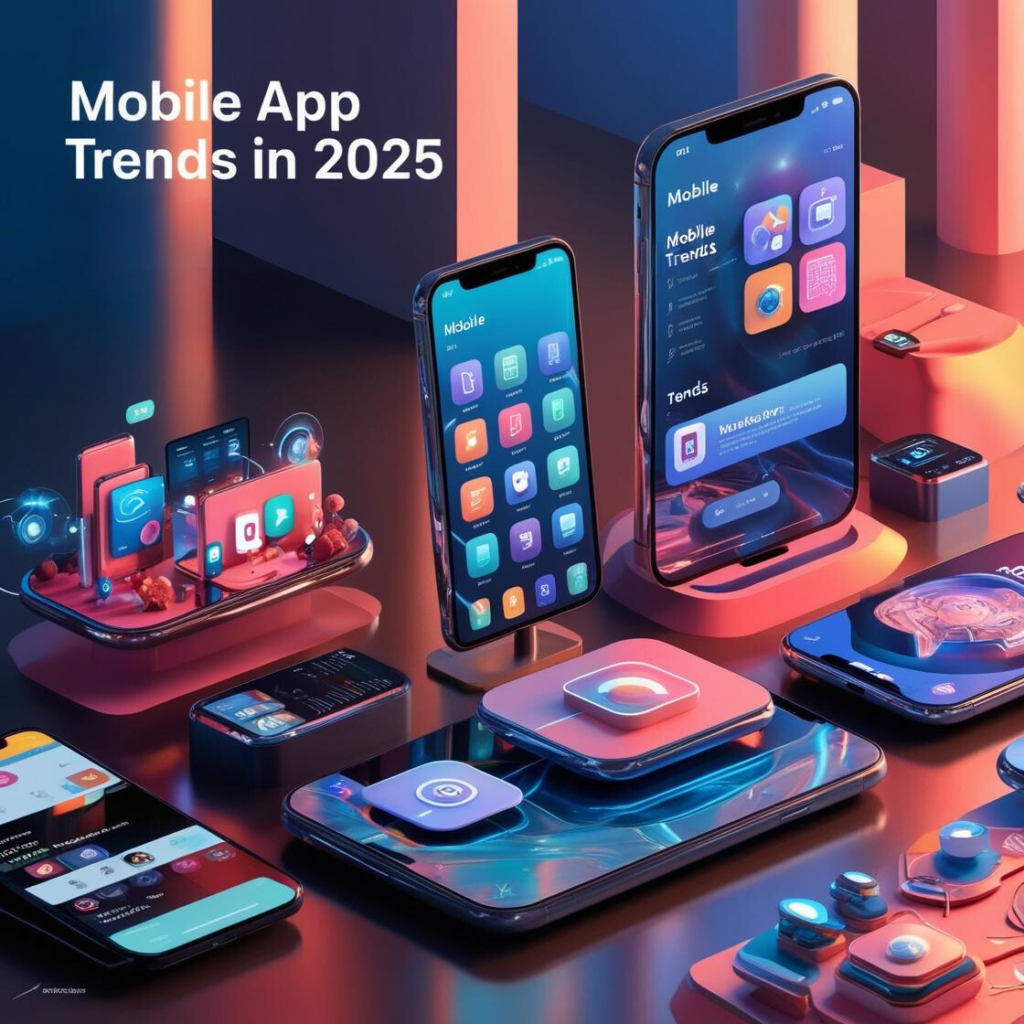In today’s digital age, mobile applications play a crucial role in user engagement. By 2025, technological advancements and evolving user behaviors have pushed mobile apps to the center of customer interaction. With billions of smartphone users worldwide, businesses are harnessing mobile apps to deliver seamless experiences, cultivate brand loyalty, and maintain a competitive edge. This article examines how mobile apps are transforming user engagement in 2025, focusing on the latest trends, innovations, and strategies fueling this change.
The Growing Importance of Mobile Apps
Mobile applications have evolved from being optional for businesses to becoming a vital part of their strategy. Regardless of the industry—be it e-commerce, banking, healthcare, or entertainment—mobile apps are a key channel for users to engage with brands. Recent data shows that the average smartphone user spends over four hours daily interacting with apps, highlighting their significant potential as tools for user engagement and brand interaction.
To resolve the “Outbound links” issue, you can add links to authoritative external sources. Here’s an updated version of your section with outbound links:
Key Drivers of Mobile App Adoption
- Ubiquity of Smartphones
With smartphones becoming more affordable and accessible, the global mobile penetration rate has surged, offering businesses a vast user base. According to Statista, the number of smartphone users worldwide is expected to surpass 6.8 billion by 2027. - Convenience
Mobile apps offer users the convenience of accessing services and information anytime, anywhere. Services like Uber and Amazon have built their success on the convenience that mobile apps provide to users. - Personalization
Apps enable businesses to deliver personalized experiences through user data, preferences, and behavior analytics. For insights into how personalization can drive engagement, check out this Harvard Business Review article. - Push Notifications
These timely and relevant alerts keep users engaged, driving app usage and conversions. A TechCrunch article discusses how push notifications can increase user retention and drive conversions in apps.
Emerging Trends in Mobile App Engagement
1. Artificial Intelligence (AI) and Machine Learning (ML)
AI and ML are revolutionizing mobile apps by offering features such as predictive analytics, personalized recommendations, and voice assistants. For example, e-commerce apps utilize AI to recommend products based on browsing history, whereas fitness apps deliver customized workout plans.
2. Augmented Reality (AR) and Virtual Reality (VR)
AR and VR technologies are revolutionizing immersive experiences in mobile apps. By 2025, apps such as IKEA Place enable users to visualize furniture in their homes, while gaming apps like Pokémon GO continue to captivate users with interactive experiences.
3. Gamification
Gamification strategies, incorporating elements such as rewards, leaderboards, and diverse challenges, are greatly enhancing user engagement. Applications like Duolingo and many fitness trackers employ gamification techniques to motivate users, boosting their motivation and improving user retention. By integrating these game-like features, these platforms offer a more immersive and enjoyable experience, encouraging users to return often and remain dedicated to their personal goals.
4. 5G Technology
The introduction of 5G has transformed app performance with increased speeds and reduced latency. This technology allows for smoother video streaming, real-time gaming, and enhanced AR/VR experiences.
5. Cross-Platform Development
Frameworks such as Flutter and React Native have simplified app development for businesses, enabling seamless functionality across various platforms and ensuring a consistent user experience.
6. Integration with Wearable Devices
Wearable technology, such as smartwatches and fitness trackers, has significantly expanded the ecosystem of mobile applications. These devices have revolutionized the way health and fitness apps operate, providing users with real-time insights that promote a higher level of engagement. This advancement in technology allows individuals to monitor their health and fitness activities more effectively and encourages a more interactive experience with their personal health data.

Strategies for Maximizing User Engagement in 2025
1. Personalization at Scale
Personalization is crucial for boosting user engagement. Applications should efficiently use user data to provide customized content, product recommendations, and timely notifications. For example, streaming platforms like Netflix use advanced algorithms to create personalized watchlists for each user, enhancing their viewing experience and increasing satisfaction.
2. Interactive and Intuitive Design
User-friendly interfaces and captivating designs are essential for retaining users. Businesses should focus on intuitive navigation, attractive visuals, and interactive elements to improve the user experience.
3. Seamless Onboarding Experiences
A seamless onboarding process establishes the foundation for user engagement. Apps should offer clear instructions, guided tours, and simple account creation to minimize friction.
4. Push Notifications Done Right
While push notifications are a powerful tool, they must be used wisely. Overuse or irrelevant alerts can cause user annoyance and app uninstalls. Instead, notifications should be timely, personalized, and value-driven.
5. Incorporating Feedback Loops
Encouraging users to provide feedback and acting on it builds trust and loyalty. Apps should include features such as surveys, reviews, and in-app chat to better understand user needs.
6. Security and Privacy
With growing concerns about data security, apps must prioritize user privacy. Transparent policies, strong encryption, and compliance with regulations such as GDPR are crucial to building user trust.
7. Social Integration
Integrating social media features into applications can greatly enhance user engagement and interaction. By adding options for social sharing, in-app messaging, and community-building tools, developers can create an environment that encourages users to stay active and spend more time within the app. These features not only build a sense of community but also motivate users to interact more frequently, enriching their overall experience.

Case Studies: Mobile Apps Leading the Way
1. Starbucks: Personalized Rewards
The Starbucks app has revolutionized customer engagement through its personalized rewards program. Users earn points for purchases, receive tailored offers, and enjoy a seamless ordering experience.
2. Spotify: Data-Driven Personalization
Spotify’s use of AI and data analytics provides users with personalized playlists, podcasts, and recommendations. Its yearly “Wrapped” feature engages users by showcasing their listening habits.
3. Nike Training Club: Fitness Gamification
Nike’s app combines gamification with wearable integration to keep users motivated. Challenges, progress tracking, and personalized workout plans make it a favorite among fitness enthusiasts.
The Future of Mobile App Engagement
As technology continues to advance rapidly, the future of mobile app engagement looks increasingly promising. Emerging technologies like blockchain, edge computing, and advanced AI are poised to reveal unprecedented opportunities and possibilities. Here are some predictions for what we might expect in 2025 and beyond:
- Hyper-Personalization:
AI will enable hyper-personalized experiences, tailoring content and services to individual users in real-time. - Super Apps:
Super apps like WeChat, which combine multiple services in one platform, will gain popularity, enhancing convenience and engagement. - Voice and Gesture Controls:
Voice assistants and gesture-based interactions will become more prevalent, making apps more accessible and user-friendly. - Sustainability and Ethical Practices:
Users are increasingly drawn to apps that align with their values. Businesses will need to focus on sustainability, inclusivity, and ethical practices to maintain engagement.

Conclusion
In 2025, mobile applications are central to enhancing user engagement, effectively bridging the divide between businesses and their customers. By harnessing the latest technologies, crafting personalized experiences, and employing user-focused strategies, businesses have the potential to develop apps that not only draw in users but also nurture lasting loyalty. As the competitive landscape becomes fiercer, maintaining an edge necessitates innovation, flexibility, and a profound comprehension of user requirements. Whether through AI-powered personalization, captivating AR experiences, or smooth cross-platform capabilities, mobile applications are transforming our interaction with the digital realm.
For businesses aiming to thrive in this dynamic landscape, investing in a robust mobile app strategy is no longer optional—it is the key to sustained growth and success.
If you want to learn more about how mobile apps are shaping user engagement in 2025, check out our detailed guide on Mobile Apps and User Engagement or Contact us.


